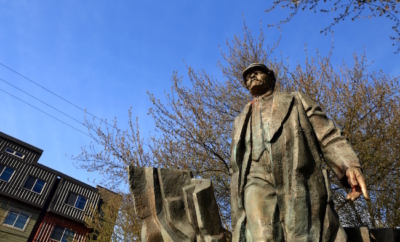
Existential Psychology
Redefining Success
Deciding not to pursue worthwhile endeavors that require a lot of time and work is, for most of us, not a question of laziness but rather due to an unconscious defense mechanism meant to protect our psyches from painful existential anxiety cued off by the threat of failure.
For many of us failure as a prospect takes on larger than life dimensions. Though barely conscious, the concern is not just about a lack of success in a specific domain but what that lack of success would mean about us as people. We’re all trying to maintain the integrity of our identities. Symbolically speaking most of us equate failure with death, with the dissolution of our very Selves.
So the stakes seem pretty high. We feel compelled to protect the idealized self-images we’ve built up, idealized self-images where we’re talented, competent, successful people. Sadly one of the most effective ways to protect the idealized self-image is to refuse to engage in any activities that might cast doubt upon it. And so objectively speaking that deep fear of failure ends up coming true in that we fail by default. We never actually get really good at anything or find real success anywhere because we never had the courage to try.
Breaking through this block is possible by using psychology to redefine success, to realize that from the perspective of the zone of proximal development success is only possible through repeated failure. This is because getting better at anything means constantly adjusting our edge, adjusting the frontiers of the zone where behaviors required for a successful outcome are challenging, so challenging that we succeed sometimes but fall short of the mark a lot. The alternative, something a lot of us have experience with, is staying away from that edge in order to exist in the warm cocoon where the task is easy. But we never get any better when we remain there, we don’t move along our personal continuums because that’s only possible when we challenge ourselves on the edge until that edge becomes a warm cocoon where required behaviors feel easy and natural, at which point we move out to meet the new edge where the task is challenging again, and so on.
With the theory of improvement outlined above in place we completely change our attitude towards failure since we interpret it as a sign that we’re succeeding in challenging ourselves at the appropriate difficulty level. We celebrate our courage and tenacity in continuing to work at that edge until we finally break through and are ready for increased difficulty. We stop fearing failure and actually embrace failure instead. It ceases to mean that our personality structures our dissolving but comes to mean that our personality structures are strengthening. Failure ceases to represent death and instead represents growth.




